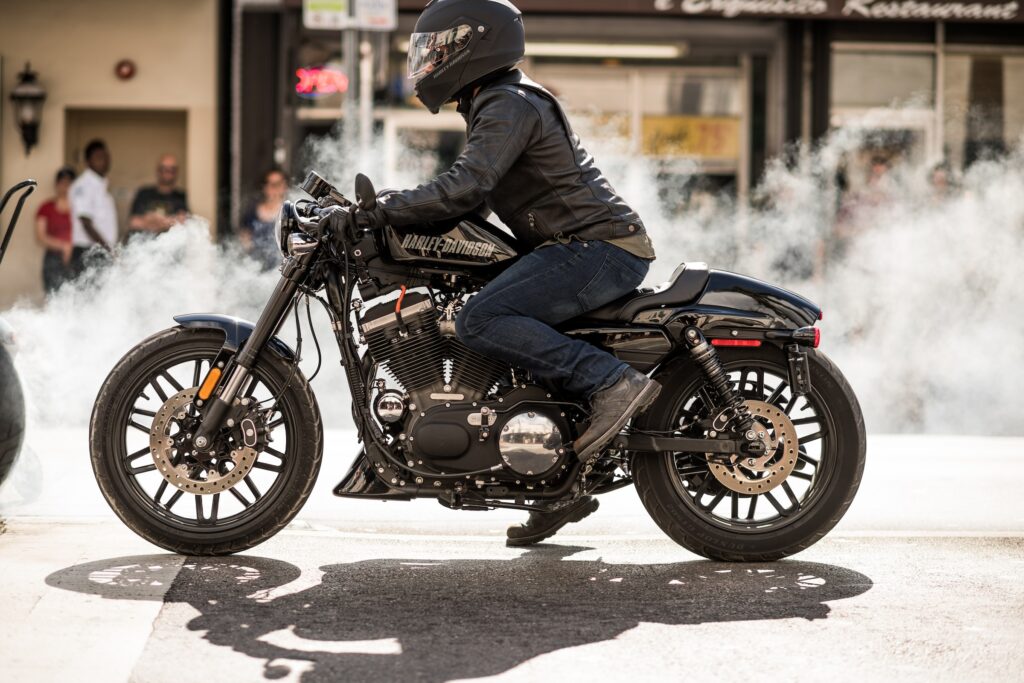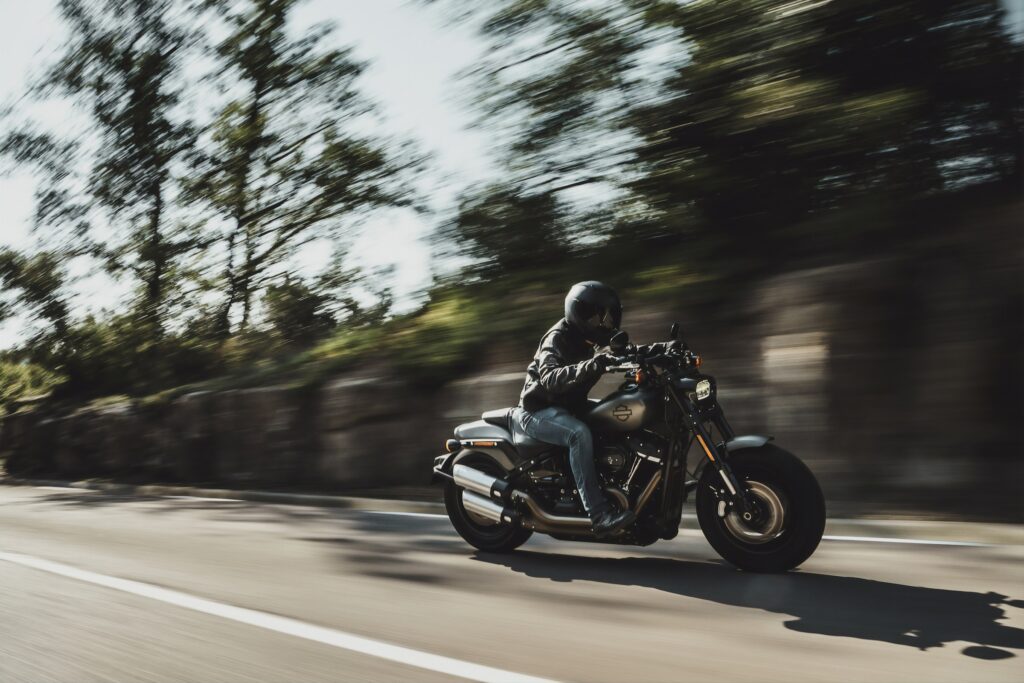Motorcycles get into a lot of crashes. They are inherently unstable and require balance to ride safely. They also have high power-to-weight ratios that require skill and experience to control. And when a rider begins to lose control, they can easily tip over and slide without ever getting hit.
Some causes of motorcycle accidents are preventable, while many are not. But even when you cannot prevent a crash, you can reduce the likelihood and severity of a possible crash. Learn more to prevent your motorcycle injury case from becoming a reality.

Causes of Motorcycle Accidents
Motorcycle crashes happen for many reasons. Some common reasons for motorcycle crashes include:
Single-Vehicle Crashes
According to one study, 34% of motorcycle accidents are single-vehicle crashes.
Single-vehicle motorcycle accidents happen almost twice as often as single-vehicle car accidents. These accidents occur when a motorcycle operator loses control of their vehicle. Some common causes of single-vehicle crashes include:
- Emergency maneuvering to avoid a collision
- Speeding
- Loss of traction
- Poor visibility
You can reduce your risk of a single-vehicle motorcycle crash in a few ways. First, you can take a motorcycle safety course and get your motorcycle license before riding. About 30% of riders killed in crashes are unlicensed, despite unlicensed operators making up less than 20% of riders. In other words, unlicensed riders are about 50% more likely to get killed than those with licenses.
Licensed riders in Oregon must prove their ability to control their motorcycles by passing a road test during a motorcycle safety course. This makes them less likely to crash in poor weather or while making an emergency maneuver.
Second, you can watch your speed, especially during:
- Traffic jams
- Rainstorms
- Rides on roads covered in gravel, dirt, or sand
Controlling your speed will reduce the odds that you will run off the road or lay your motorcycle down. This, in turn, protects you from the leg, arm, and head injuries that can result from hitting and sliding on the pavement.
Left Turn Across Path
One of the most common collisions between vehicles and motorcycles is called a “left turn across path” (LTAP) collision. As the name suggests, LTAP happens when a vehicle turns left across the path of an oncoming motorcycle.
These crashes often happen when drivers:
- Fail to spot an oncoming motorcycle
- Try to beat a motorcycle through the intersection
- Misjudge the speed or distance of the motorcycle
Unfortunately, riders cannot do much to prevent these types of accidents. Many of them happen due to a cognitive bias against spotting motorcycles. The brain filters motorcycles from objects recognized as relevant while driving.
Riders can take steps to make themselves more visible, like keeping their headlight on at all times as required by Oregon law. They can also avoid riding at night or wear reflective strips when they must ride after dark. But these steps will not change how drivers recognize motorcyclists.
Research also suggests the motorcyclist’s speed can play a role.
Slowing down can, at times, give other drivers more time to recognize your motorcycle.
A slower speed can also give you a window to swerve or stop if a driver does turn left across your path.
However, you should use discretion as to when this is the proper move to make; sometimes, slowing down can cause a rear-end collision or can place you in another vehicle’s blind spot.
Rear-End Collisions
Rear-end crashes can happen when a motorcycle hits the rear of a car or when a car hits the rear of a motorcycle.
These crashes can result from:
- Tailgating
- Speeding
- Aggressive driving
- Cutting off other drivers
In a rear-end car accident, the occupants of both vehicles could suffer serious whiplash injuries. But they will not typically suffer fatal injuries.
A motorcyclist could get ejected in a rear-end motorcycle crash. And anytime a motorcyclist gets ejected, they can suffer serious or even fatal injuries to the head, face, and neck.
Some ways a motorcyclist can reduce the risk of a rear-end collision include:
- Following vehicles at a safe distance
- Controlling their speed
- Leaving space when passing other vehicles
Generally, as a motorcyclist, it is best to leave substantial room between you and the vehicle in front of you – much more so than you would when driving a car.
Run Off Road
Another common type of motorcycle accident happens when a motorcyclist gets run off the road. This can happen in a few circumstances. First, a near-miss can cause a motorcyclist to swerve and run off the road. Second, a vehicle can move into a motorcyclist’s lane. A sideswipe collision can run the motorcyclist off the road.
Again, sideswipe collisions involving a car can often cause property damage and minor injuries. But these crashes rarely cause fatal injuries when neither vehicle is a motorcycle.
A motorcycle involved in a near-miss or sideswipe can get knocked to the pavement or run onto the shoulder or into the median. In the worst-case scenario, the motorcyclist can get forced into oncoming traffic where they get hit in a head-on collision.
Motorcyclists can take a few steps that will reduce their risk of getting run off the road. The most important step you can take is to avoid riding in a vehicle’s blind spot. Motorcycles are smaller than passenger vehicles and can easily be overlooked by careless drivers.
Instead of riding in other drivers’ blindspots, try to move forward or back so they can see you in their mirrors or through the windshield. And when you pass another vehicle, pass it quickly before moving out of the passing lane.

Riding Your Motorcycle Safely in Oregon
Your motorcycle injury case may already be a reality. But you can avoid legal, financial, and physical distress by staying conscious of other drivers and keeping your motorcycle under your control. You should watch your speed and make yourself as visible as possible while riding.
Oregon law requires you to wear a motorcycle helmet. Although a helmet will not prevent an accident, it can significantly reduce your risk of a head injury. Many of the common causes of motorcycle accidents happen outside of your control. A motorcycle helmet can save your life when you get hit even though you did everything right.
